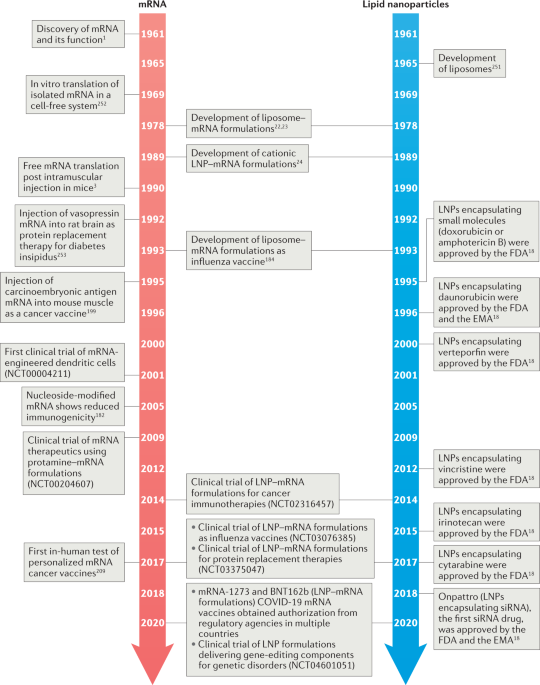
- Select a language for the TTS:
- UK English Female
- UK English Male
- US English Female
- US English Male
- Australian Female
- Australian Male
- Language selected: (auto detect) - EN
Play all audios:
In 2018, more than 4,000 publications were dedicated to the study of the gut microbiota, and an important proportion investigated cardiometabolic disorders associated with overweight and
obesity. Novel mechanisms and strategies have emerged, some of which were focused not only on specific bacteria or nutrients, but also on new metabolites. KEY ADVANCES * Faecal salinity
shapes the microbiota by reducing the abundance of _Bifidobacterium_ and _Akkermansia_7. * Imidazole propionate is increased in patients with type 2 diabetes mellitus (T2DM); this compound
directly contributes to the development of insulin resistance6. * _Bifidobacterium_ and _Akkermansia muciniphila_ have been inversely associated with low-grade inflammation, insulin
resistance and T2DM8. Access through your institution Buy or subscribe This is a preview of subscription content, access via your institution ACCESS OPTIONS Access through your institution
Access Nature and 54 other Nature Portfolio journals Get Nature+, our best-value online-access subscription $32.99 / 30 days cancel any time Learn more Subscribe to this journal Receive 12
print issues and online access $209.00 per year only $17.42 per issue Learn more Buy this article * Purchase on SpringerLink * Instant access to full article PDF Buy now Prices may be
subject to local taxes which are calculated during checkout ADDITIONAL ACCESS OPTIONS: * Log in * Learn about institutional subscriptions * Read our FAQs * Contact customer support
REFERENCES * Cani, P. D. Human gut microbiome: hopes, threats and promises. _Gut_ 67, 1716–1725 (2018). Article CAS Google Scholar * Makki, K. et al. The impact of dietary fiber on gut
microbiota in host health and disease. _Cell Host Microbe_ 23, 705–715 (2018). Article CAS Google Scholar * Gibson, G. R. et al. Expert consensus document: the International Scientific
Association for Probiotics and Prebiotics (ISAPP) consensus statement on the definition and scope of prebiotics. _Nat. Rev. Gastroenterol. Hepatol._ 14, 491–502 (2017). PubMed Google
Scholar * Brown, J. M. & Hazen, S. L. Microbial modulation of cardiovascular disease. _Nat. Rev. Microbiol._ 16, 171–181 (2018). Article CAS Google Scholar * Beaumont, M. et al. The
gut microbiota metabolite indole alleviates liver inflammation in mice. _FASEB J._ 32, 6681–6693 (2018). Article Google Scholar * Koh, A. et al. Microbially produced imidazole propionate
impairs insulin signaling through mTORC1. _Cell_ 175, 947–961 (2018). Article CAS Google Scholar * Seck, E. H. et al. Salt in stools is associated with obesity, gut halophilic microbiota
and _Akkermansia muciniphila_ depletion in humans. _Int. J. Obes_. https://doi.org/10.1038/s41366-018-0201-3 (2018). Article Google Scholar * Pedret, A. et al. Effects of daily consumption
of the probiotic _Bifidobacterium animalis_ subsp. _lactis_ CECT 8145 on anthropometric adiposity biomarkers in abdominally obese subjects: a randomized controlled trial. _Int. J. Obes_.
https://doi.org/10.1038/s41366-018-0220-0 (2018). Article Google Scholar * Cani, P. D. & de Vos, W. M. Next-generation beneficial microbes: the case of _Akkermansia muciniphila_.
_Front. Microbiol._ 8, 1765 (2017). Article Google Scholar * Hill, C. et al. Expert consensus document: the International Scientific Association for Probiotics and Prebiotics consensus
statement on the scope and appropriate use of the term probiotic. _Nat. Rev. Gastroenterol. Hepatol._ 11, 506–514 (2014). Article Google Scholar Download references ACKNOWLEDGEMENTS P.D.C.
is a senior research associate at FRS-FNRS (Fonds de la Recherche Scientifique). P.D.C. is a recipient of grants from FNRS, FRFS-WELBIO, under grant: WELBIO-CR-2017-C02, The Excellence Of
Science (EOS 30770923), the Funds Baillet Latour (Grant for Medical Research 2015), POC ERC grant 2016 (European Research Council, Microbes4U_713547) and ERC Starting Grant 2013 (Starting
grant 336452-ENIGMO). AUTHOR INFORMATION AUTHORS AND AFFILIATIONS * Metabolism and Nutrition Research Group, WELBIO–Walloon Excellence in Life Sciences and BIOtechnology, Louvain Drug
Research Institute, UCLouvain, Université catholique de Louvain, Brussels, Belgium Patrice D. Cani Authors * Patrice D. Cani View author publications You can also search for this author
inPubMed Google Scholar CORRESPONDING AUTHOR Correspondence to Patrice D. Cani. ETHICS DECLARATIONS COMPETING INTERESTS P.D.C. is the inventor on patent applications dealing with the use of
_A. muciniphila_ and its components in the treatment of obesity and related disorders. P.D.C. is co-founder of A-Mansia biotech SA. RIGHTS AND PERMISSIONS Reprints and permissions ABOUT THIS
ARTICLE CITE THIS ARTICLE Cani, P.D. Microbiota and metabolites in metabolic diseases. _Nat Rev Endocrinol_ 15, 69–70 (2019). https://doi.org/10.1038/s41574-018-0143-9 Download citation *
Published: 02 January 2019 * Issue Date: February 2019 * DOI: https://doi.org/10.1038/s41574-018-0143-9 SHARE THIS ARTICLE Anyone you share the following link with will be able to read this
content: Get shareable link Sorry, a shareable link is not currently available for this article. Copy to clipboard Provided by the Springer Nature SharedIt content-sharing initiative







